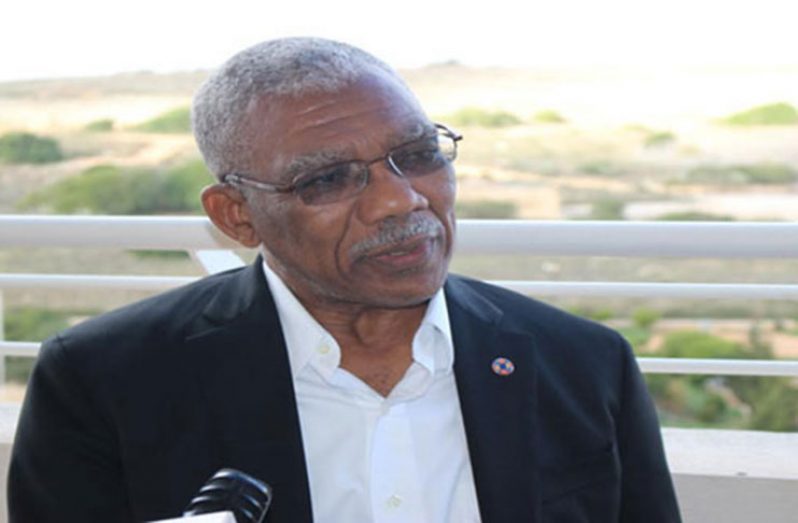–when he assumes CARICOM chairmanship
MERE weeks before he assumes the chairmanship of the Caribbean Community (CARICOM), President David Granger has already signalled his intention to put the Region’s economy first.
Speaking last week on his weekly televised programme, ‘The Public Interest’, President Granger made it clear that enhancing the lives of the people within the 15-member bloc will be the main focus of his tenure.
“We have to deliver a certain quality of life to our citizens, and that quality of life would be based on bread-and-butter issues,” he said.
President Granger noted that while much has been achieved within CARICOM over the last 43 years, there’s still much more room for improvement.
He made specific reference to the CARICOM Single Market and Economy (CSME), an integrated development strategy which was envisioned at the 10th Meeting of the Conference of Heads of Government of CARICOM in 1990 in Grenada.
SERIOUS CRITICISMS
Over the years, there have been many criticisms about the CSME, in that many are of the opinion that it’s an utter waste of time, while others feel it’s an outright failure.
The objective of the CSME, however, has always been to deepen economic integration by advancing beyond being a mere common market and moving more towards a Single Market and Economy.
By so doing, it was intended to widen membership, thereby expanding the economic mass of the Caribbean Community and progressively inserting the region into the global trading and economic system by strengthening trading links with non-traditional partners.
“We need to get the CARICOM Single Market and Economy moving,” President Granger said just last week while in Barbados for that country’s celebration of its 50th Independence anniversary.
TIME TO DELIVER
He is of the strong opinion that the Caribbean people need to benefit from the wealth of the Region, and noted that his focus would be to ensure high education standards, and that the social obligations of the respective governments are met.
“CARICOM will, in 2017, be 44 years old; we have to make some mature judgements,” he said, adding that among some of the questions that yet need to be answered are, “Is CARICOM moving as quickly as we want it to? And are we serving the people of the Region as they expect to be served?”
President Granger is adamant that, granted that there are other major issues at stake, such as security, “the most important consideration is the economy.”
REAL BENEFITS
Noting that the task for regional leaders in the year ahead will be to translate the accumulated knowledge gained over the years into “real benefits to our people”, President Granger made it clear that the promises made at the establishment of the CSME must be delivered; that there needs to be more manufacturing, production and trade within the bloc.
Noting, too, that it’s high time that the Region’s natural resources are exploited, President Granger said CARICOM needs to keep abreast of the needs of its people, and to also understand that developed countries in East Asia and Northern Europe are moving at a tremendous pace.
“We have to look at means to be competitive…nobody is going to wait for us,” he stressed, while adding that all the preferential markets have completely disappeared.
Additionally, he noted Guyana’s ‘green’ agenda and said the Region needs to move in that direction. He expressed confidence that the ‘green’ agenda would be able to provide energy from renewable sources while pointing to eco-tourism, education and diversified tourism.
He noted that enhancing the standard of education is critical to young people finding employment within the Caribbean, but not as tour guides and waitresses but rather as zoologists and botanists.
This, he said, will ensure that the Region becomes “one economic zone”.
REGIONAL SECURITY
On the subject of regional security cooperation, President Granger reiterated its importance not only to Guyana, but to each CARICOM state. He referenced the Cubana air disaster, but noted that regional security is not limited to terrorist attacks but to providing relief to citizens when in need, be it during natural disasters as was the case in Grenada, Haiti and The Bahamas over the years.
“We can make more progress in the future,” President Granger stressed, noting that without security cooperation each individual state would be unable to fulfil their security agendas.
“We need to have a more intensive programme for security cooperation,” he stressed.



.jpg)










